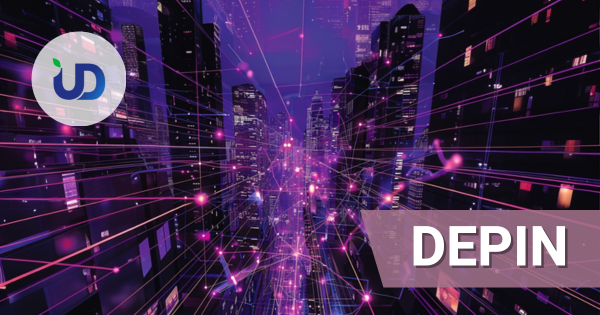Decentralized Physical Infrastructure Networks (DePIN): The Future of Infrastructure for Blockchain & Crypto
In a world increasingly reliant on interconnected infrastructure, traditional centralized models are facing growing challenges in keeping pace with the demand for widespread, reliable, and sustainable networks. Enter Decentralized Physical Infrastructure Networks (DePIN), a revolutionary concept that leverages blockchain technology to empower communities to build and maintain real-world infrastructure in a decentralized manner.
Unveiling the DePIN Revolution
Traditionally, infrastructure development has been dominated by large corporations and government agencies, leading to a top-down approach that often fails to address the needs of local communities and lacks adaptability to evolving demands. DePIN, on the other hand, embrace a decentralized, community-driven approach, giving individuals and organizations a direct say in the infrastructure that shapes their surroundings.
At the heart of DePIN lies the concept of tokenized rewards, which incentivize participation and collaboration among community members. By contributing their resources, expertise, and time to building and maintaining infrastructure assets, individuals and organizations can earn tokens that hold value within the DePIN ecosystem. This token economy fosters a sense of ownership and responsibility among community members, encouraging them to actively contribute to the development and upkeep of their local infrastructure.
DePIN: A Definition and Purpose
DePIN are decentralized ecosystems that utilize blockchain technology to facilitate the creation, maintenance, and operation of physical infrastructure assets. These assets can encompass a wide range of tangible elements, such as wireless hotspots, charging stations for electric vehicles, and data centers.
The core principle behind DePIN is the use of a token economy to incentivize participation and collaboration. Through token rewards, individuals and organizations are encouraged to contribute their resources, expertise, and time to building and maintaining these infrastructure networks.
Addressing the Challenges of Centralized Infrastructure
The traditional centralized approach to infrastructure development has several inherent limitations. It is often characterized by top-down decision-making, limited adaptability, and a lack of community engagement. These factors can lead to inefficient resource allocation, slow response to evolving needs, and a disconnect between infrastructure providers and the users they serve.
DePIN offer a compelling alternative, addressing these challenges through a decentralized governance model and a focus on community participation. This approach fosters innovation, adaptability, and a high level of user satisfaction.
DePIN: Key Features and Components
DePIN are built upon a foundation of key components that enable their decentralized operation. These components include:
1. Blockchain Technology: The backbone of DePIN, blockchain provides an immutable and transparent ledger for recording infrastructure assets, transactions, and user interactions.
2. Token Economy: A system of digital tokens incentivizes participation in infrastructure building and maintenance, rewarding individuals and organizations for their contributions.
3. Smart Contracts: Self-executing contracts automate transactions and ensure compliance with rules and regulations governing DePIN operations.
4. Decentralized Governance: A distributed network of nodes governs DePIN, ensuring transparency, inclusivity, and adaptability.
Real-World Applications and Benefits
DePIN are finding applications in a diverse range of industries, including:
1. Wireless Networks: DePIN can enable the deployment of decentralized wireless networks, providing reliable and affordable internet access to underserved areas.
2. Electric Vehicle Infrastructure: DePIN can accelerate the rollout of charging stations for electric vehicles, facilitating the transition to a cleaner transportation system.
3. Data Centers: DePIN can foster the development of decentralized data centers, ensuring data privacy, security, and cost-effectiveness.
The benefits of DePIN extend beyond their specific applications. They offer a more equitable, efficient, and sustainable approach to infrastructure development, empowering communities to take ownership of their digital infrastructure landscape.
Conclusion: A Bright Future for Decentralized Infrastructure
DePIN represent a paradigm shift in infrastructure building, offering a decentralized, community-driven approach that addresses the limitations of traditional centralized models. As DePIN technology matures and adoption grows, we can expect to see a revolution in the way we manage and interact with physical infrastructure, paving the way for a more connected, sustainable, and equitable future.
DePIN are still in their early stages of development, but their potential is immense. To learn more about this transformative technology and its applications, explore the resources available online and engage with the growing DePIN community. Together, we can shape the future of infrastructure and make it more accessible, efficient, and sustainable for all.
UD offered institutional grade blockchain infrastructure, from private chain, public chain, rpc node hosting to validator. We help to build your own blockchain ecosystem and network. Our expertise will choose the most appropriate chain based on your business needs.





